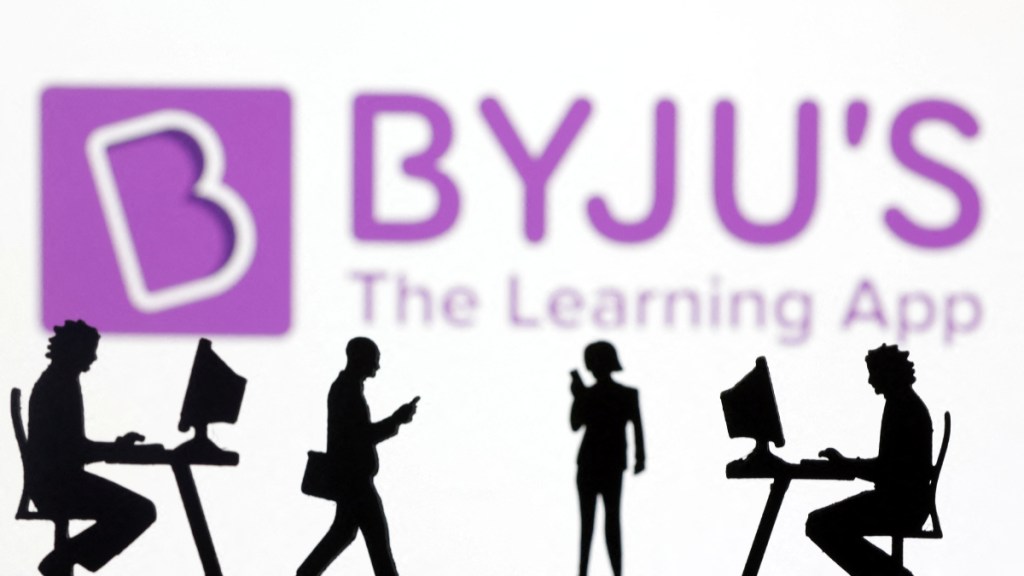By R. Chandra Mouli
Filing an insolvency petition can work wonders, especially in an ecosystem that favors creditors, further to the constitution of the National Company Law Tribunal.
If you want to know when NCLT was established, the answer can be found in the Exam Prep lessons – published by Byju’s.
Stating the topic is important for UPSC aspirants, the study material informs us that NCLT came into being in 2016 as a quasi-judicial body, with the power to try cases of special matter and adjudicate issues concerning companies. Decisions taken herein can be appealed to the National Company Law Appellate Tribunal (NCLAT). Decisions of NCLAT can be appealed to the Supreme Court, on a point of law.
Little did the students, teachers, or founders of Byju’s know their fate could be decided years later by NCLT, which reviewed on November 18 and 19 an insolvency petition filed by India’s largest sporting body, The Board of Control for Cricket in India (BCCI).
BCCI’s contention is the non-payment of Rs 158 crore by Byju’s towards the branding of jerseys of the Indian cricket team. When efforts to recover the sponsorship dues failed, the cricket body approached NCLT, asking the sponsor to be declared insolvent, a punitive step that bowled out other creditors who had planned a similar petition.
GLAS, a trustee enterprise representing a set of creditors seeking pre-payment of a USD 1.2 billion loan, had initiated a parallel effort in the USA for insolvency filing against Byju’s American entities.
GLAS jumped into the fray and challenged the National Company Law Appellate Tribunal’s (NCLAT) earlier decision to halt insolvency against Byju’s parent company Think & Learn Pvt. Ltd. As a result, a Committee of Creditors (CoC) comprising several lenders to Think & Learn, found its hands tied with the ongoing battle in the courts.
Meanwhile, as is customary in insolvency matters, a Resolution Professional has been appointed by NCLT to oversee the company’s financial affairs.
Also read: Solving the Byju’s question: Is there sunrise after sunset?
The Karnataka High Court, responding on November 8 to a petition filed by GLAS expressing concerns about the Resolution Professional’s handling of the insolvency process, halted the CoC from conducting any meetings or making decisions concerning the company’s insolvency process. This decision awaits further proceedings at the National Company Law Tribunal (NCLT), which is tasked with resolving applications in the matter of replacement of the company’s Resolution Professional (RP).
This brings us to an unexpected development on November 12:
BCCI, the erstwhile initiator of insolvency, approached NCLT seeking withdrawal of its petition against Byju’s. The move by BCCI follows a Supreme Court ruling on October 23, which quashed an NCLAT order allowing a settlement between BCCI and Byju’s. Lenders have opposed BCCI’s withdrawal application, stating the CoC needs to decide before such a plea is made.
Breather for Byju’s
Does the googly from BCCI bring a breather for Byju’s?
According to a senior lawyer who does not wish to be named, the situation augurs well for the edtech enterprise. The insolvency filing, if withdrawn, removes the Damocles sword hanging overhead in India, gives the founders time to regain company control, access frozen bank accounts and make plans to repay creditors.
The relief from NCLT is subject to the rider that no other insolvency petition is pending in Indian courts or tribunals, the lawyer stated, and cautioned that much depends on further hearings and judgments. NCLT had taken up the matter on Nov. 18 and 19 and the final decision is expected on November 26 or later.
According to Byju Raveendran, his company intends to pay BCCI and other creditors. He points out that his brother Riju has mobilized Rs.158 crores from his savings and is ready to pay the cricket body. However, the payout was stalled when GLAS, an overseas entity, was allowed to intervene in court proceedings in India.
GLAS, according to Raveendran, does not have locus standi in India or USA, since it does not represent majority of the lenders.
A loan amount of USD 1.2 billion, first issued by two American banks to the company’s US subsidiary, was subdivided in the secondary market into multiple lenders, an action that required consent of the borrower, according to Raveendran. He has represented in US courts that GLAS is a trustee of lenders who are not approved to be part of the term loan table, and that such lenders are seeking prepayment of a five-year loan within three years.
As the game intensifies off the field, the insolvency withdrawal petition can become a ray of hope in the darkness that has enveloped Byju’s. Its co-founder must continue to bat against the odds, and if he can convince creditors his intent is to pay, they may opt to declare, just like BCCI.
(The writer is a former journalist now serving as a communications consultant. Views expressed are his own)
